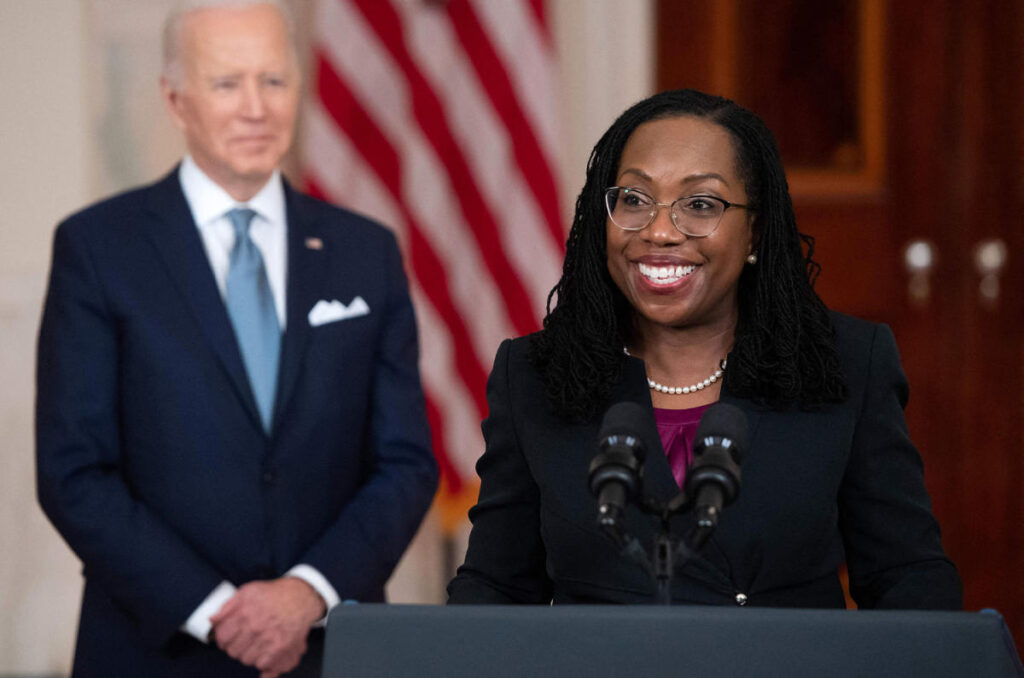As President Joe Biden approaches the conclusion of his term, he is poised to leave a significant legacy in the judiciary through the appointment of a historically high number of judges of color. Recently, the Senate confirmed Tiffany Johnson for the Northern District of Georgia, marking Biden’s appointment of 40 Black women to federal judgeships, surpassing the number appointed by any previous president within a single term. In total, Biden has appointed 233 federal judges, with approximately 60% being people of color. With additional nominees awaiting confirmation, there is potential for an even higher count, which could further solidify Biden’s historical record in diversifying the federal judiciary.
Biden’s commitment to increasing diversity in federal courts was evident even before he took office. Lena Zwarensteyn, a civil rights advocate, noted the importance of including individuals historically excluded from the judiciary to enhance decision-making and community trust in judicial institutions. The significance of this diversification is backed by research indicating that judges with varied backgrounds can lead to better outcomes in terms of justice. Biden’s efforts to reshape the federal judiciary come in opposition to prior administrations, with Barack Obama having appointed 26 Black women judges during his two terms, compared to the limited appointments made by Donald Trump and Jimmy Carter during their respective tenures.
Senate Democrats are working diligently to confirm as many of Biden’s remaining nominees before the political landscape shifts, as Republicans are set to take control in the upcoming term. Despite the confirmations that have already transpired, several circuit court nominees are currently facing hurdles and await approval. Advocates stress the importance of these circuit judges, as their decisions impact critical issues such as voting and consumer rights, labor laws, and climate change. The urgency highlights the long-term impact that these appointments may have on American lives and the judiciary’s interpretation of law.
Biden’s emphasis on appointing judges from diverse professional backgrounds, such as civil rights lawyers and former public defenders, marks a clear departure from a historically homogenous judiciary. Over half of his appointments have been women, and he has also made proactive efforts to include LGBTQ judges and representatives from various racial and ethnic communities. Noteworthy is the appointment of Justice Ketanji Brown Jackson, the first Black woman to serve on the U.S. Supreme Court, which symbolizes the administration’s commitment to representation and equality in the highest echelons of the judiciary.
Experts like Dedrick Asante-Muhammad assert that Biden’s initiatives in judicial appointments are paving the way for a more representative and inclusive judiciary. The long-term implications of these appointments are crucial, not only for representation but also for fostering public confidence in the legal system. By normalizing the presence of Black judges within the federal system, these appointments reflect evolving societal values and enhance the legitimacy of judicial decision-making.
As Biden’s presidency draws to a close, the implications of his judicial appointments will resonate throughout the legal landscape, especially as they counterbalance potential judicial shifts that may follow in the next administration. Advocates and experts acknowledge the profound influence that Biden-appointed judges have had on improving justice for Americans across various demographics. This transformative aspect of his presidency, while often overlooked, is seen as a cornerstone of his legacy, emphasizing the importance of diversity and representation in the judiciary.

